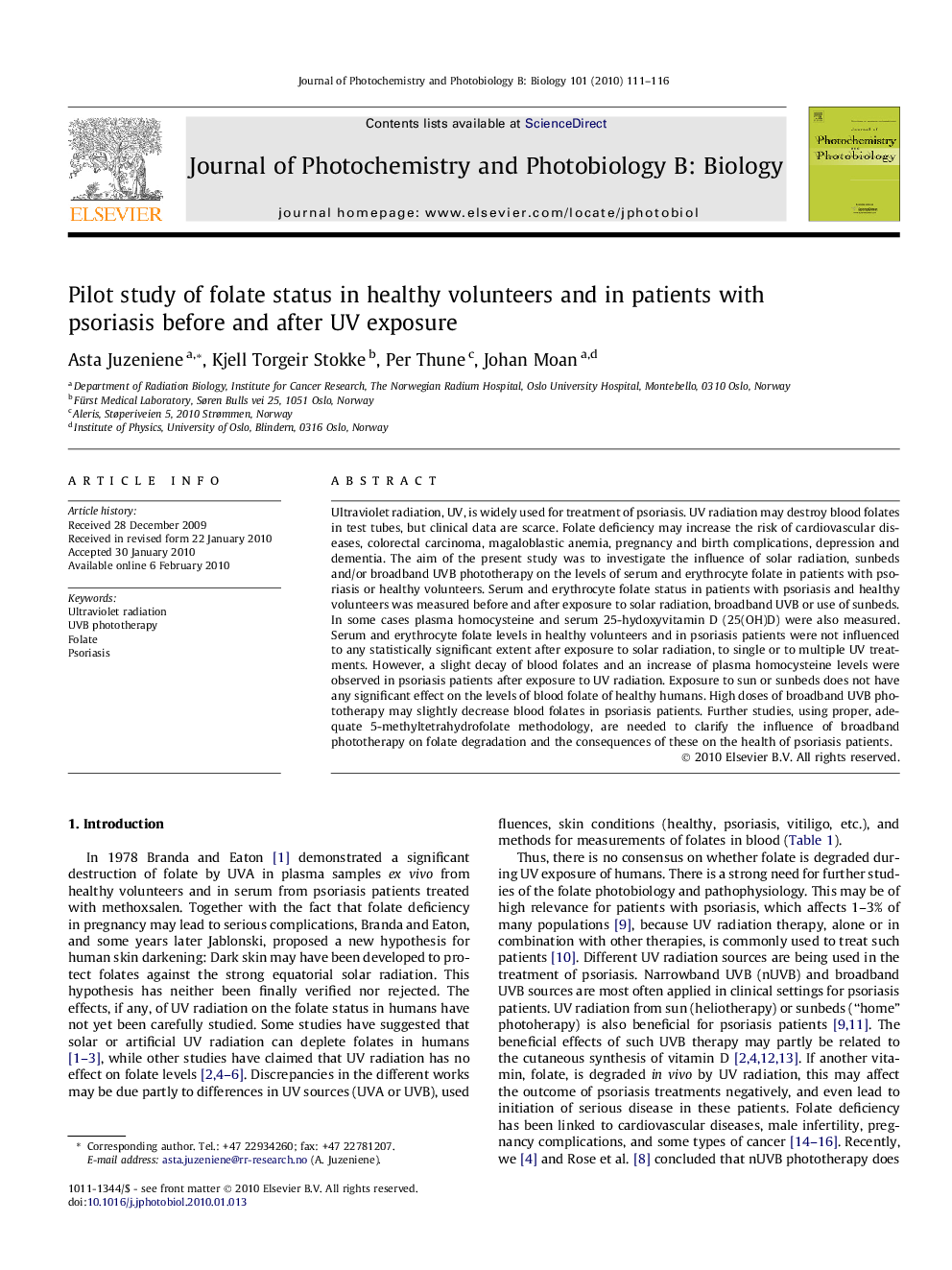| Article ID | Journal | Published Year | Pages | File Type |
|---|---|---|---|---|
| 30859 | Journal of Photochemistry and Photobiology B: Biology | 2010 | 6 Pages |
Ultraviolet radiation, UV, is widely used for treatment of psoriasis. UV radiation may destroy blood folates in test tubes, but clinical data are scarce. Folate deficiency may increase the risk of cardiovascular diseases, colorectal carcinoma, magaloblastic anemia, pregnancy and birth complications, depression and dementia. The aim of the present study was to investigate the influence of solar radiation, sunbeds and/or broadband UVB phototherapy on the levels of serum and erythrocyte folate in patients with psoriasis or healthy volunteers. Serum and erythrocyte folate status in patients with psoriasis and healthy volunteers was measured before and after exposure to solar radiation, broadband UVB or use of sunbeds. In some cases plasma homocysteine and serum 25-hydoxyvitamin D (25(OH)D) were also measured. Serum and erythrocyte folate levels in healthy volunteers and in psoriasis patients were not influenced to any statistically significant extent after exposure to solar radiation, to single or to multiple UV treatments. However, a slight decay of blood folates and an increase of plasma homocysteine levels were observed in psoriasis patients after exposure to UV radiation. Exposure to sun or sunbeds does not have any significant effect on the levels of blood folate of healthy humans. High doses of broadband UVB phototherapy may slightly decrease blood folates in psoriasis patients. Further studies, using proper, adequate 5-methyltetrahydrofolate methodology, are needed to clarify the influence of broadband phototherapy on folate degradation and the consequences of these on the health of psoriasis patients.
